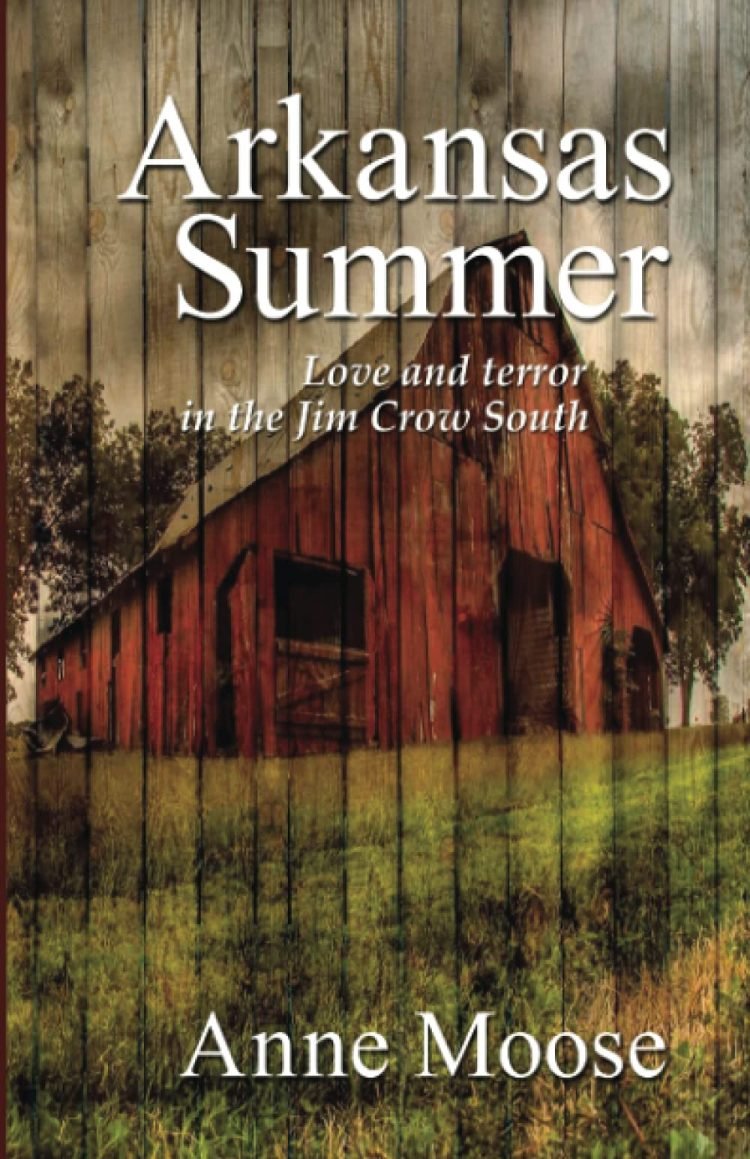No products in the cart.
Arkansas Summer by Anne Moose
It’s 1955, and Catherine is a college student in Anne Moose’s novel Arkansas Summer. She relocates from California to Arkansas to assist her father in addressing the situation with her grandma following the passing of his father. Her beloved childhood playmate Jimmy, the son of the housekeeper for her grandma, is reconnected with her. Although there is a strong attraction between them, it would be risky for a black man to display anything more than casual indifference to a white woman in the south. Will their love withstand the animosity they encounter?
After Catherine’s spouse passed away, we first meet her. She is young and in the midst of grief with her daughter when she feels the desire to share her experience with a young love. Moose thoroughly immerses her readers in the charm of 1955 by having them ride in a steamy bus full of perspiring, stenching people. Her grandfather, from whom her father was alienated for an unspecified reason, has reportedly passed away.
Because her in-laws don’t particularly like Catherine’s mother, she has chosen to remain in California, leaving her husband and daughter to reestablish contact with his mother. Jimmy, who Catherine hasn’t seen since she was nine years old, and Catherine also get along. He is now 20 years old and appealing due to his past with Catherine as well as his power and brains. Young, hormonally active, and ripe for an accident are Jimmy and Catherine. Everyone is still thinking about the young Emmett Till case, especially Jimmy’s mother, who rightfully fears losing her second-oldest child.
The majority of Arkansas Summer is a very real narrative. Although I was not alive in 1955, I have studied the Civil Rights movement, and much of what Moose suggests is factually plausible. It was risky to be black in the South at a time when having dark skin was enough to get you killed.
At first, Catherine can seem like a limp fish, but when she and Jimmy get back together, their passion comes across as genuine. The story is straightforward but interesting. With Catherine, we explore Arkansas, and despite its beauty, the danger is obvious. Catherine’s conversation reads as a real child on the verge of adulthood, even though some of it is clichéd at first. Arkansas Summer was printed for me, and the editing is excellent. This 302-page book’s tale begins to get really engaging and takes some surprising turns about the halfway point.
The romance in Arkansas Summer is not a surprise, but Moose is a gripping story of tragedy and wide-eyed innocence pursued by resentment and hatred and, ultimately, retaliation. The narrative fluidly transitions between periods, and when we eventually get back to Catherine and her daughter Hannah, Hannah’s reflections and memories of significant events weave together how far society has come and how far we still have to go. We are the key to change since we have all either seen or experienced hatred. Beyond the forbidden and doomed love of two 20-year-old college students, Moose portrays a social unconscious.
Arkansas Summer piqued my curiosity greatly. The characters—Catherine, Hannah, Jimmy, et al.—are intriguing, and Moose’s writing style keeps the reader on the edge of their seats while without overly lengthening the narrative. Without giving away any surprises, I adored the conclusion. Without a doubt, I would read another book by this author.
About The Book
Arkansas Summer is a powerful novel about love and racial terror in the Jim Crow South. It’s 1955, and Catherine has joined her father in Arkansas after her grandfather’s death. She’s a California college student, and it’s her first visit to her grandparents’ farm since the summer she was nine.
When she is reunited with Jimmy, whom she’d played with as a child, the two are immediately drawn to one another. They understand the dangers of their interracial attraction, but could never have imagined the far-reaching consequences of their untimely love.
Arkansas Summer takes readers on an emotional journey of passion and suspense, all the while shining a spotlight on the twisted ethos and violence of the segregated South.
The Review
Arkansas Summer
9.3 Score
Ms Moose certainly held my interest in her fast moving story of the ratial turbulance in the south. In my growing up years in Missouri I did not have involvement of anything like this. There was not much mixture of races in my life but there were some, with no problems. This story combines most situations that you could imagine happening, in the blinding of friends and races, in Arkansas in the early 1950's. The KKK was busy in this fictional town and had their way of "fixing" problems that arose. The public was brain washed and filled with fear; never daring to interfer with the actions. If you are interested in the realities of this time in history this book needs to be in your library. You might say it is a love story of a different kind.
PROS
- Very Emotional Book.
- Amazing Storyline!
- Heartfelt And Passionate.
- Engrossing Story, Excellent Writing.
CONS
- Unrealistic And Flat.
- Dull And Boring.
- Sad And Shallow.
- Horrible Writing.











